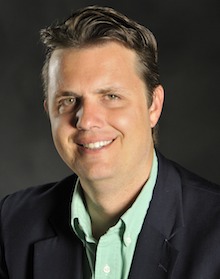Interview with Adam Boatsman, founding partner of Boatsman Gillmore Wagner PLLC
Adam Boatsman from Boatsman Gillmore Wagner PLLC shares his professional and personal viewpoints in this revealing and thoughtful interview. The Boatsman story began as an engineering major, and after a few stints working in restaurants, he saw another path before him. As a second-generation accountant, Boatsman started out with Fortune 500 companies, and then returned to his roots, utilizing a straightforward philosophy, “Clients hire you to provide answers.” This down-to-earth approach to the field of accounting and his years of experience working with clients shines through in this perceptive interview.
 What event or series of events led you to pursue accounting or the study of accounting as a professional choice?
What event or series of events led you to pursue accounting or the study of accounting as a professional choice?
I started off as an engineering major at Arizona State University. After three years of Calculus, I decided that maybe engineering wasn’t right for me and I’d had the chance to manage a few restaurants during college so I found that I liked business. My father was an accounting professor at Arizona State and he encouraged me to look at a new dual track program in Computer Science and Accounting – I found that this combined everything that I liked in one package.
Name 1 or 2 specific challenges you have faced in your accounting career and the steps you took to meet these challenges.
I’ve found that people hire you to solve complicated problems they can’t solve themselves (otherwise they wouldn’t hire you) – so really my challenges are related in that:
a) I faced some very complicated problems that Fortune 500 companies couldn’t solve that I needed to solve (otherwise I’d be fired!) – which required looking at a problem as a series of very small solvable problems and steps, and;
b) I found that sometimes people are the problem – in that they don’t always like or want to implement your solution – and sometimes you just need to get over that.
How would you advise an individual entering the accounting profession to proceed? What are the challenges, or obstacles that may be faced?
I think understanding work-life-balance is probably the most difficult thing for the new professional. So many graduates are encouraged to start in public accounting without a full understanding of the workload. They get burnt-out. Others like public accounting but get burnt-out. However, I’ve found that most professions carry the same demands of your time, so you really have to figure out what works for you. For example, everyone wants to be healthy. If you find that you can’t exercise in the morning or the evening because you’re tired on both ends or have family constraints, you need to figure out a way to work a slightly different schedule so you can exercise when you have the energy to exercise. I wake up a 5:30am, get work done, but oftentimes work out in the middle of the day because that’s when my energy level is the highest. I’m productive intellectually at 5:30am but can’t be productive physically.
Can you give us an example of an interesting case or project that you have worked on and your role in helping to achieve a positive outcome?
I’ve always enjoyed helping people be more profitable. Recently a medical laboratory asked us to analyze how they could make more money – we found that they had been replacing higher gross margin tests with lower margin tests, so they were working harder for less money. We convinced them to change their product mix around and helped solve their problem.
If you could suggest a role model for a new accountant, who would it be and why?
It’s very old school, but Dale Carnegie, in that the advice is timeless and is the basis for every book on leadership and client relationships that has ever been written since. Warren Buffett in that you shouldn’t let money go to your head and be aware of your social responsibility.
As an accomplished author of a blog related to accounting, what advice would you offer to the new accountant concerning the role of social media in their profession?
Use LinkedIn as a tool to get connected, and be careful expressing political views on Facebook. Just remember – it’s your professional image regardless of whether or not you believe it’s an expression of your personal image as the results show up in Google.
This is the last question and time for the inner accountant in you to break free. What is the key strength you bring to your career and how would you advise new accountants to mine their own strengths to further their careers.
Clients hire you to provide answers. It’s a great skill to be able to provide a well-thought out answer in a short period of time – with the confidence that you are right. If you can’t do this, don’t be afraid to say “I don’t know.”
We would like to thank Adam Boatsman for his participation in this interview. His contribution made it apparent that he has walked in the shoes of the new professional and is gifted in sharing his story. Adam Boatsman is the main contributor to the corporate blog for Boatsman Gillmore Wagner PLLC. You can also follow Adam on LinkedIn.
